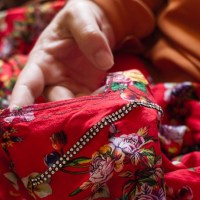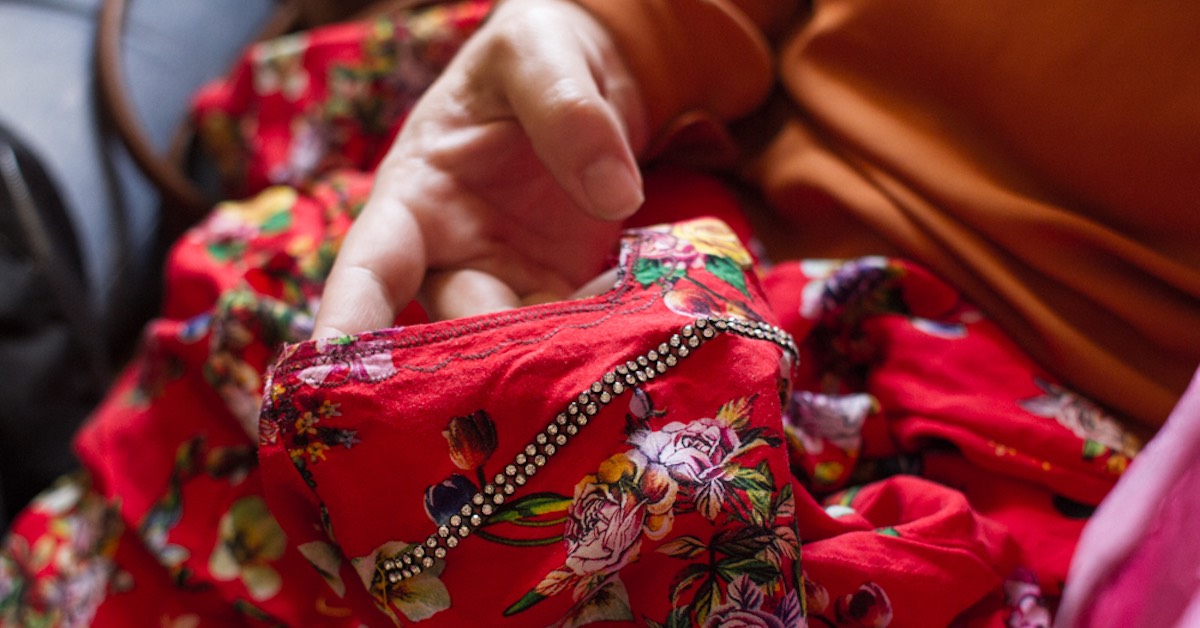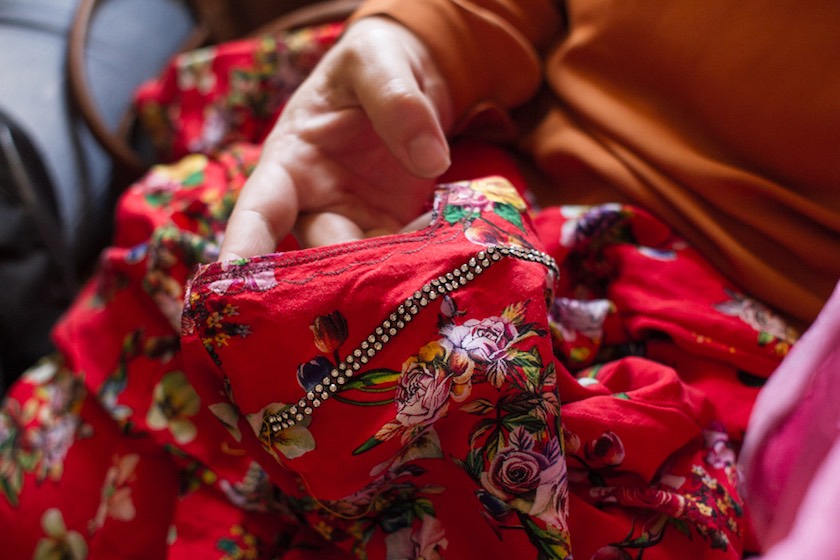
Ikhlas cried the whole first year she was displaced.
“God willing, next Ramadan we will be back in Fallujah,” Ikhlas told herself. That was two years ago, as she and her family struggled to piece together a new life after fleeing ISIS.
“God willing, next Ramadan we will be back in Fallujah,” they told themselves again last year.
This summer, another Ramadan came and went. right around the corner. Last May, their home town became an active war zone…again. Ikhlas has no idea if her neighbors are still alive or not, her house still standing or not.
Now she tells us, “Next Ramadan, God willing…”
It’s hard to stitch together a new life from scratch.

Before marriage and children, Ikhlas had the kind of normal life that most girls here have. She helped her mother at home and enjoyed lots of time with her many cousins.
Ikhlas had plenty of time to sew with her sister—to make garments for themselves and their family. In the suburbs of Fallujah, they could buy whatever supplies they needed. If they craved a little more variety, they could easily go to Fallujah proper, a well-stocked city. There, Ikhlas could stand in the crowded bazaar and let the riot of colorful fabric wash over her until she found exactly the right shade and pattern.
With marriage came a home and husband to care for, and less time to sew. The addition of children meant even less time for the craft she enjoyed so much. But that was to be expected—life was full of housework, family, and neighbors.
When ISIS first came to Fallujah, the little-known group didn’t seem so bad to a lot of residents. Fallujans had endured years of demoralizing conflict and deep mistrust with the federal government, and ISIS hadn’t yet shown their true color. “How much worse could it be?” they wondered.
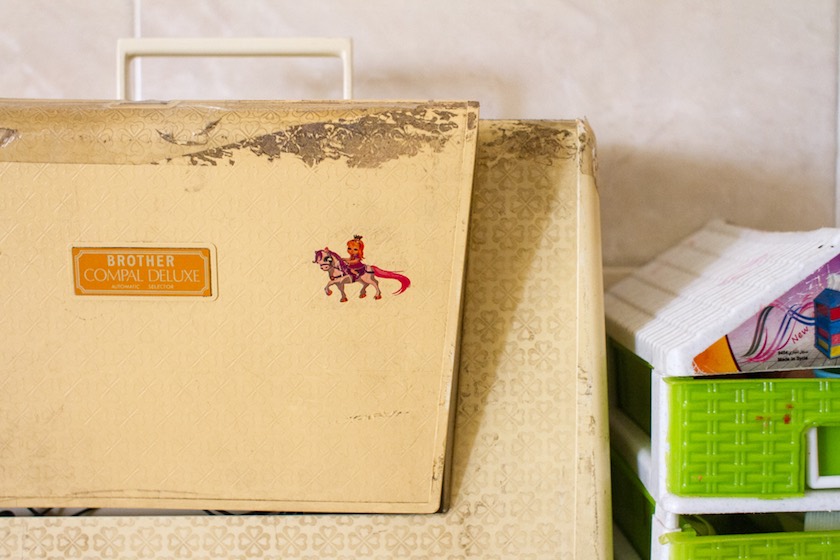
The main room in Ikhlas’ third floor walk-up is bright and clean—light from the large window reflects around the tile-wrapped room. Her sewing machine is neatly stored in the corner, with a little plastic storage case that holds supplies.
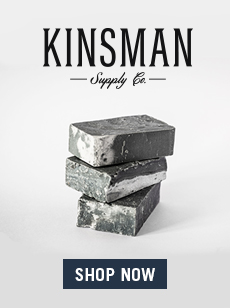
We sat on couches near the window, a coffee table pulled up close to our knees to make it easier to reach the cups of orange juice and tiny muffins set out for us.
“ISIS is killing everyone who tries to flee Fallujah.” Ikhlas’ expression didn’t change much during our visit several weeks ago. The day before, she’d tried to call a relative trapped in Fallujah, but the phone lines there weren’t working. Landlines and cell coverage had been cut to keep residents from giving away military positions during the battle for Fallujah.
Ikhlas had made it out of Fallujah two years before, as ISIS was tightening its grip. She and her family tried many times to get into Baghdad—the nearest safe city—with their most precious personal belongings packed up and divided among them to carry. Again and again, they were turned away at the security checkpoint. Officials worried that ISIS sympathizers would enter Baghdad posing as everyday Fallujans.
Each time the stakes grew higher—ISIS was taking over.
Persistence paid off for Ikhlas. She finally made it into Baghdad, taking refuge in her mother’s home. But Baghdad wasn’t the kind of landing place she thought it would be. She and her family felt so unwelcome—suspect. She was afraid her children would be kidnapped by militias, so she kept them home from school.
Eventually, the family moved north, to try again.
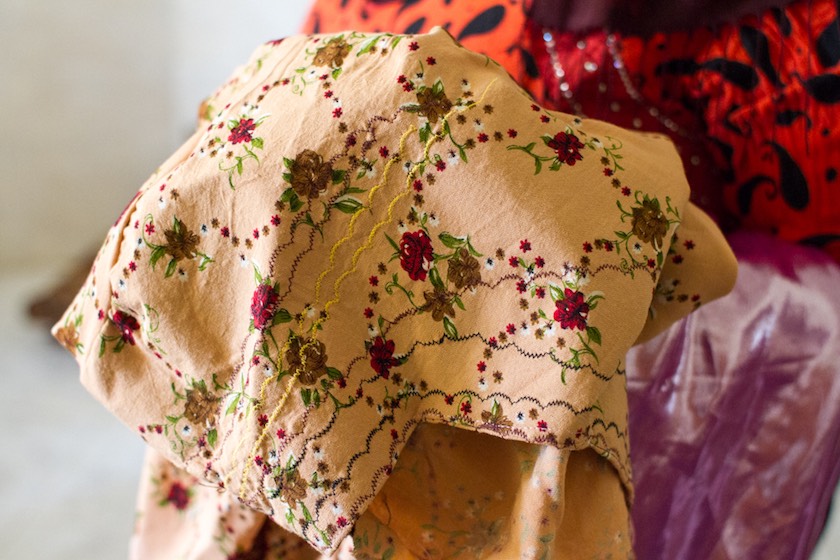
“I wish I could sew every day.”
Ikhlas’ young boy is tugging at her, pleading for her attention. One of his sisters takes him to an inner room to play.
“When I sew, I forget myself. I forget my sorrow.”
You gave Ikhlas the sewing machine that is helping her earn enough money to buy groceries and care for her family.
But you also gave Ikhlas the means to forget, for a little while, the life she lost. You gave her the means to remember a childhood simple, and full of color. You gave her the chance to direct her focus away from the worry of caring for a husband and nine children so far from home. You gave her the means to work out her grief one seam, one decorative stitch at a time.
She does not know when she will be able to return to Fallujah—or how many more Ramadans will pass before she sees her home again. But until then, you are helping her family stitch together a new life.

